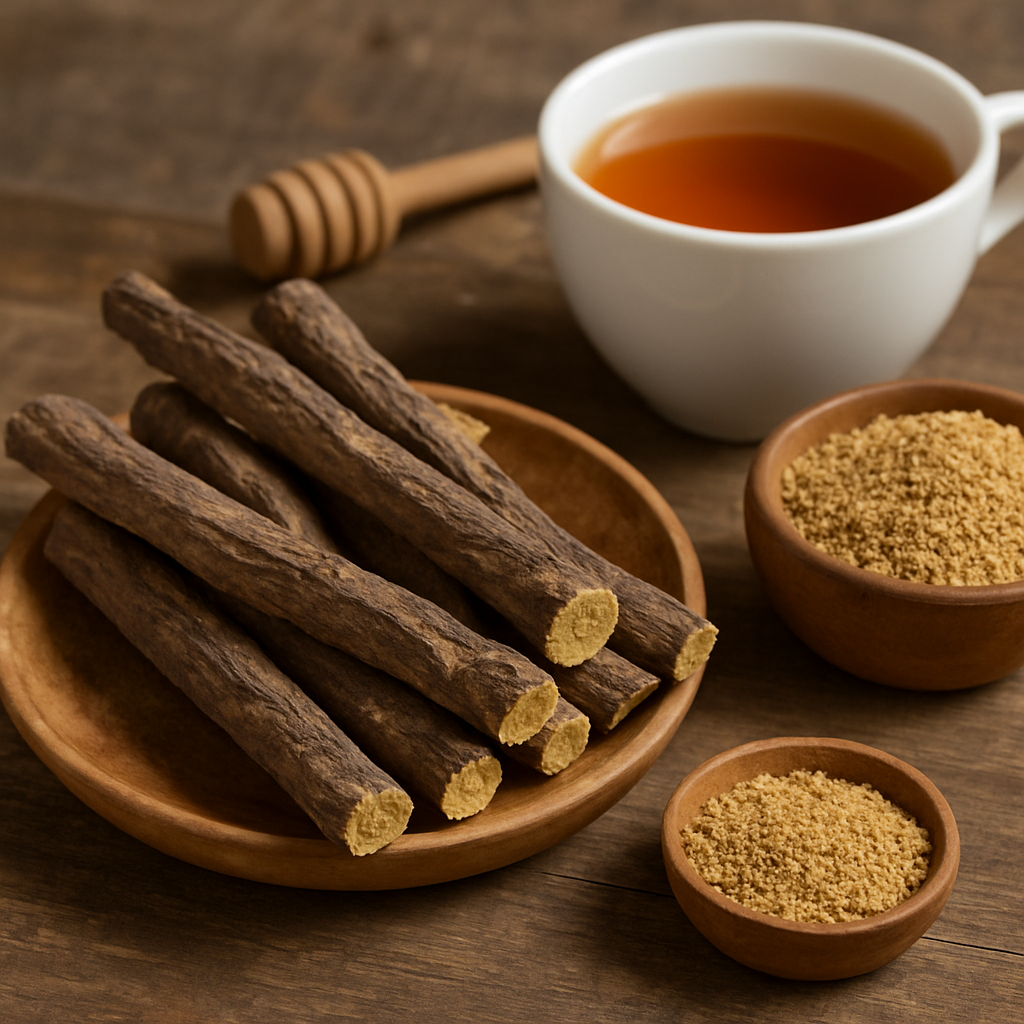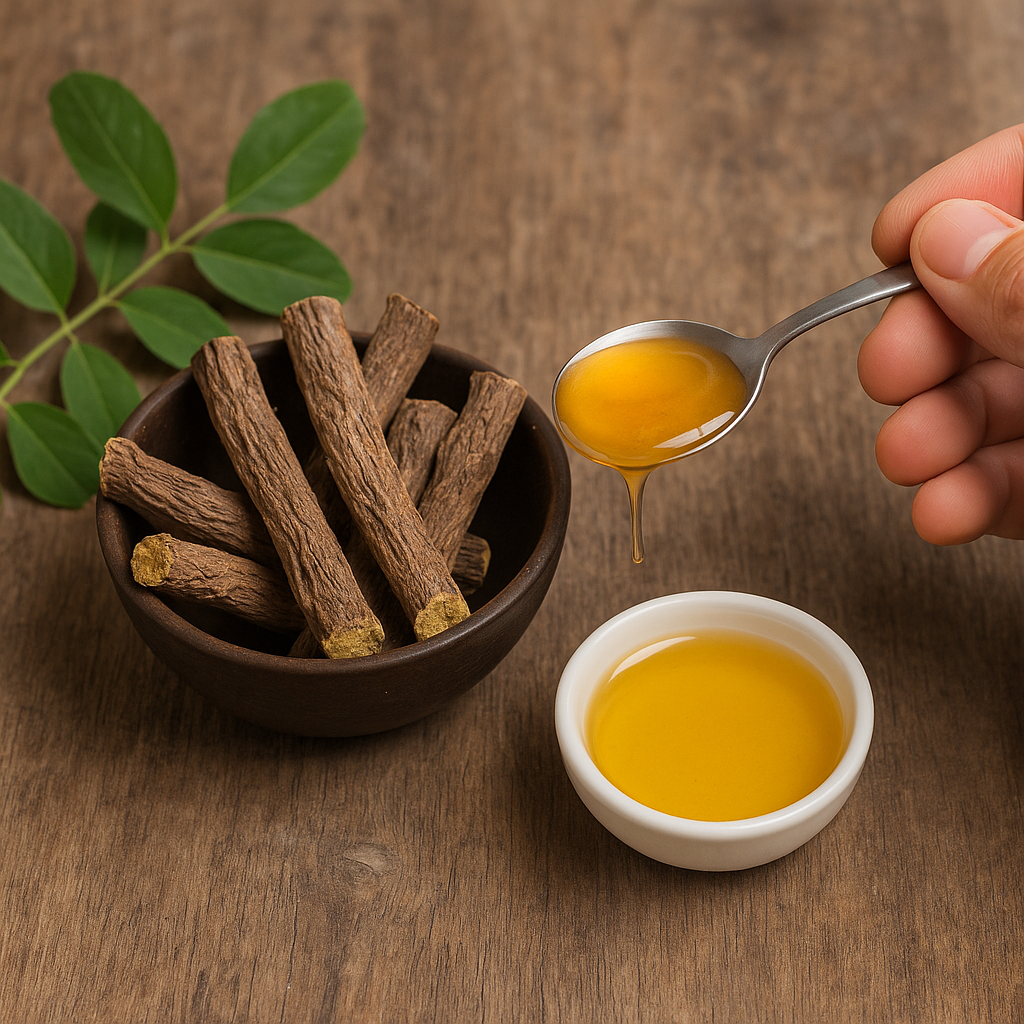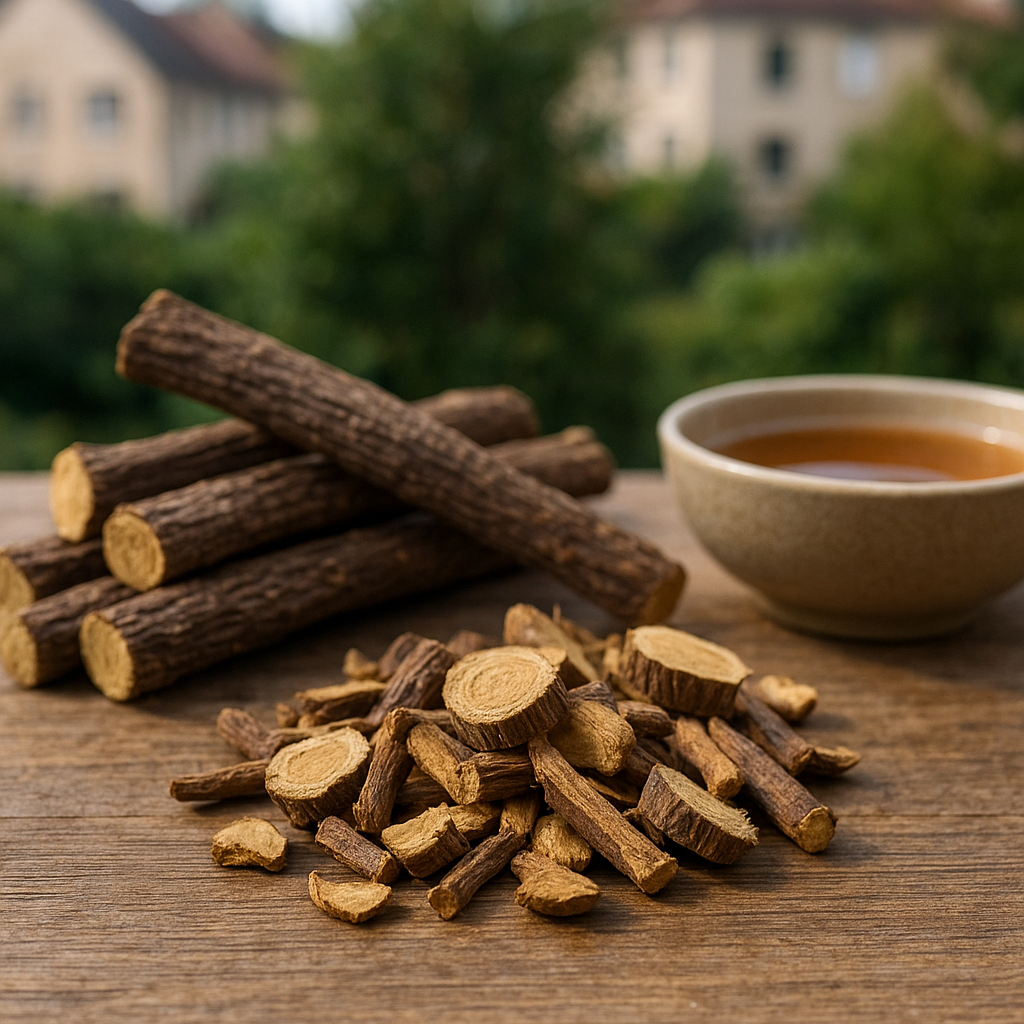Is Mulethi Good for Cough? Ayurvedic Benefits and Remedies

When you're dealing with a nagging cough that just won’t quit, reaching for natural remedies might be your best bet—and that’s where mulethi steps in. Also known as licorice root, mulethi has been a staple in Ayurvedic medicine for centuries. But is mulethi good for cough, really? Or is it just another ancient myth that’s lost its meaning in modern times?
Let’s clear the air.
Mulethi is more than just a soothing herb—it’s packed with anti-inflammatory, antimicrobial, and demulcent properties that make it a powerful weapon against throat irritation and persistent coughs. Whether you’re battling a dry cough or a chest full of mucus, mulethi for cough might just be the gentle, effective remedy you didn’t know you needed. This article dives deep into mulethi benefits for cough, how to use it, its pros and cons, and why people still swear by it after hundreds of years. Let’s get into it.

Is Mulethi Good for Cough Relief?
How Mulethi Helps in Cough and Throat Irritation
So—does mulethi helps in cough? The short answer: yes. The long answer? Well, it's worth exploring.
Mulethi (or licorice root) works by soothing inflamed mucous membranes in your throat. That dry, scratchy feeling that triggers the cough reflex? Mulethi targets it directly. It's known to produce a protective mucus-like coating in the throat that reduces irritation and calms the coughing impulse.
The anti-inflammatory properties of mulethi help reduce swelling in the upper respiratory tract. So whether you’ve got a sore throat, viral cold, or even allergies making you miserable, mulethi might be just what you need to turn things around.
Does Mulethi Work for Dry Cough and Congestion?
If you’re specifically wondering about mulethi for dry cough, you’re not alone. A lot of people use it because dry coughs are often stubborn and painful. Mulethi helps moisten the airways and reduce that constant tickle that makes dry coughing so annoying.
But wait—there’s more. Mulethi isn't just good for dry cough. It’s also mildly expectorant, meaning it can help break up phlegm. While it’s not as aggressive as over-the-counter cough syrups, its natural compounds do support your body in clearing out mucus gently. That makes mulethi in cough treatments a popular choice for people who want results without synthetic ingredients or drowsy side effects.
Don't wait or self medicate. Start chat with Doctor NOW
Licorice Root for Cough According to Ayurveda
In Ayurvedic tradition, mulethi is considered a “rasayana”—a rejuvenating herb. It's used not just to treat symptoms, but to balance doshas (Vata, Pitta, and Kapha). When your doshas are out of whack, especially Kapha (which governs mucus and fluids), coughs tend to flare up.
Ayurveda recommends licorice root for cough because of its soothing and cooling effects. It’s often paired with honey, ginger, or turmeric for a synergistic blend that’s both healing and balancing.
One classic remedy involves boiling mulethi powder with water to make a tea or “kadha.” This is sipped slowly to help clear up not just coughs, but also related issues like sore throat and mild bronchitis.

How to Use Mulethi for Cough Relief
So now that we know mulethi is good for cough, the next question is: how do you actually use it? The beauty of this herb is that it’s super versatile—you can chew it, brew it, powder it, or even take it as a capsule.
Mulethi Powder and Tea for Cough Treatment
Let’s start with the most common methods.
One of the easiest ways to use mulethi for cough is by making tea. Just boil a teaspoon of dried mulethi root or powder in water for about 10 minutes. You can add a bit of honey (not too much!) and lemon for extra soothing power. Sip this 2–3 times a day.
If you’re in a hurry (or just lazy like me sometimes), mulethi powder can also be mixed with honey directly. This paste is especially good for dry coughs because it coats the throat and reduces irritation almost instantly.
In Ayurvedic homes, this remedy is a go-to during the winter season. You might hear a grandma say, "take this, beta—it’ll clear your throat in no time." And weirdly, it often works.
Dosage and Best Time to Take Mulethi for Cough
Dosage matters. Just because it’s natural doesn’t mean more is better.
For adults, 1/2 to 1 teaspoon of mulethi powder per day is generally safe. If you’re drinking mulethi tea, 2–3 small cups spread throughout the day is usually fine. But—and this is important—avoid taking it for more than 2 weeks continuously unless advised by a professional.
Best time? Ideally, take mulethi tea or paste after meals. It helps digestion too, so that’s a nice bonus. Some people like to take it before bed because it calms the throat and helps them sleep better without coughing fits waking them up at 3 a.m. (the worst.)
Don’t go overboard, though. Licorice for cough is powerful, but too much of it can lead to side effects—more on that in a bit.

Benefits of Licorice for Cough
Mulethi Uses for Cough and Respiratory Health
By now, you’re probably starting to see the pattern: mulethi benefits for cough are real and backed by both tradition and science.
It’s known to:
-
Soothe irritated throat linings
-
Reduce inflammation in the airways
-
Help break down mucus gently
-
Support the immune system
-
Relieve symptoms of bronchitis and laryngitis
That’s a lot for one humble root. And again, it does all this without knocking you out or making you jittery like some synthetic meds do.
Plus, mulethi isn’t just limited to coughs. It’s used in Ayurvedic treatments for asthma, acid reflux, ulcers, and even hormonal balance. But that’s a rabbit hole for another article!
Combining Mulethi with Other Ayurvedic Herbs
Want to up your game?
Mulethi pairs incredibly well with other herbs like tulsi (holy basil), ginger, and turmeric. These combos can be brewed into powerful herbal teas that tackle cough from multiple angles—reducing inflammation, fighting infection, and boosting immunity.
Here’s a simple combo:
-
1 tsp mulethi
-
4–5 tulsi leaves
-
1/2 inch grated ginger
-
Pinch of turmeric
-
Boil in 2 cups of water, reduce to 1 cup, and sip slowly
It’s earthy, spicy, and actually kinda nice. And yes—it works.
Side Effects of Using Mulethi in Cough Treatment
Okay, now let’s get real for a moment.
Just because something is natural doesn’t mean it’s 100% risk-free. While mulethi is good for cough, using it excessively or incorrectly can lead to some issues.
Too much mulethi can cause:
-
Water retention and bloating
-
Increased blood pressure (yes, really)
-
Lower potassium levels
-
Headaches or fatigue
This is mainly because of a compound in licorice root called glycyrrhizin, which can mess with your body’s electrolyte balance if taken in high doses. That’s why it’s recommended to stick with safe dosages and avoid long-term use unless a qualified health professional says otherwise.
Pregnant women, people with heart issues, and those on medication for blood pressure or kidney problems should consult a doctor before using mulethi for cough or anything else.
Also—don’t give mulethi supplements to kids without proper advice. We'll get to that now.
FAQs
Is mulethi safe for children with cough?
In small, occasional doses—yes. Mulethi can be safe for children over 2 years old, especially in herbal teas or home remedies. But always check with a pediatrician first. Kids' systems are more sensitive, and what works for adults doesn’t always work for little ones.
A common home remedy for kids is warm mulethi tea with honey (but never honey for babies under 1!). It’s soothing, and if given at bedtime, can help calm night coughs.
How long does mulethi take to relieve throat irritation?
In many cases, relief is felt within the first 24 hours. That said, mulethi in cough remedies work best when taken consistently for 2–3 days. It’s not an instant fix like a lozenge, but it’s a more sustainable solution that heals rather than masks the problem.
What is the best way to consume mulethi for cough?
That depends on your preference. The most effective and commonly used methods are:
-
Mulethi tea: Great for both dry and wet coughs
-
Powder with honey: Good for on-the-go relief
-
Mulethi lozenges or capsules: Easy for regular use
-
Herbal combinations: With tulsi, ginger, turmeric, etc.
If you ask 5 different people in India, you'll probably get 5 different answers. Everyone has their favorite "nuskha" (remedy), and most of them are worth trying!
Conclusion
So, is mulethi good for cough?
Absolutely—when used wisely. Its gentle yet effective action on the throat and respiratory system makes it a trusted remedy in Ayurvedic medicine and beyond. Whether you’re dealing with a dry cough, sore throat, or general congestion, licorice root for cough is a time-tested solution that deserves a spot in your natural remedy toolkit.
Just remember to use it responsibly, be aware of possible side effects, and talk to a healthcare provider if you have any underlying conditions. For most people, though, mulethi for cough is safe, soothing, and seriously effective.
If you found this guide helpful, share it with someone who’s coughing up a storm right now (we all know at least one, right?). And if you’re into natural healing, check out our other Ayurvedic remedy articles for more tried-and-true wellness tips.
Also—have you ever tried mulethi for cough? Drop your favorite home remedy or story in the comments! Let’s keep the wisdom flowing ✨
Got any more questions?
Ask Ayurvedic doctor a question and get a consultation online on the problem of your concern in a free or paid mode.
More than 2,000 experienced doctors work and wait for your questions on our site and help users to solve their health problems every day.

